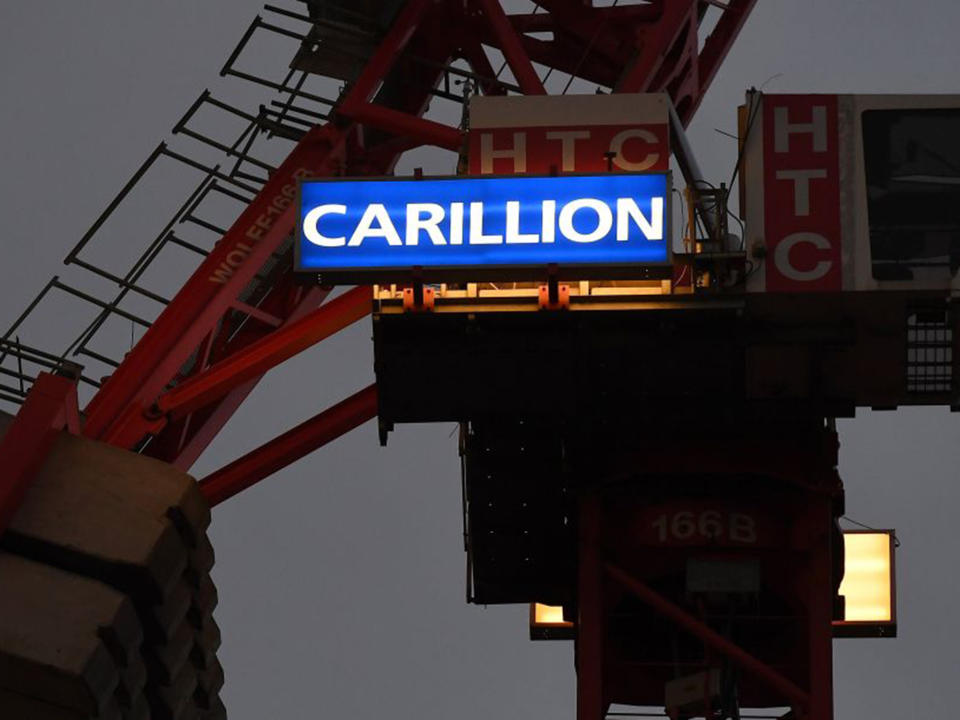Carillion collapse: Ministers told to stop 'scandal' of thousands of private sector workers losing their jobs today

Ministers have been told to stop the “scandal” of thousands of Carillion's private sector workers being put out of work by the end of today.
The GMB union condemned the treatment of the infrastructure giant’s staff on private sector contracts, who the Government agreed to pay for just 48 hours from its collapse on Monday.
Tim Roache, the union’s general secretary, warned they were “much more vulnerable” than the workers on public sector contracts, whose jobs are safe for now.
“The government response so far has been wholly inadequate and frankly inept,” he said.
“What they have said is that, if you haven’t been picked up by another private sector company by close of play today, then here is the Jobcentre Plus address. That’s frankly scandalous.”
Mr Roache said the solution was for those workers to be taken on by the other private companies working on Carillion’s contracts, but he warned: “That takes time.”
The union has proposed a Government-led taskforce to co-ordinate the rescue effort, a message delivered in a face-to-face meeting with the Business Secretary, Greg Clark.
“What we said to Greg Clark yesterday is that we need more time – those companies we need more time.”
Amid the uncertainty, the RMT rail union has asked whether 600 workers providing cleaning services for Arriva Rail North and track maintenance for Network Rail are part of contracts that qualify for public support.
The union complained it had received no reply. “Our argument is that these are public sector contracts because they provide a public service," said a union spokesman.”
Protecting Carillion’s private sector workers would push up the cost to the taxpayer – which the Government is under pressure to minimise.
Ministers have argued that keeping public services operating will not incur a bill because it is simply replicating money that would have gone to the company anyway.
It means there will be no extra costs to the taxpayer stemming from Carillion’s liquidation, other than the fees paid to the official receiver and “associated insolvency costs”, they say.
When ministers discussed the crisis at Cabinet on Tuesday, they made clear that no nationalisations are on the table.
Theresa May told the Cabinet that the “taxpayer could not be expected to bail out a private company”, according to her official spokesman.
On Monday, David Lidington, the Cabinet Office minister, told MPs: “The position of private sector employees is that they will not be getting the same protection that we’re offering to public sector employees, beyond a 48-hour period of grace.
He insisted the move would “give time for the private sector counterparties to Carillion to decide whether they want to accept termination of those contracts, or themselves to pay for the ongoing costs”.
But, Mr Lidington added: “After 48 hours, either the private sector counter-party must agree to fund future provision including the fees of the Official Receiver, or those private sector contracts of Carillion will be terminated.”

 Yahoo News
Yahoo News 